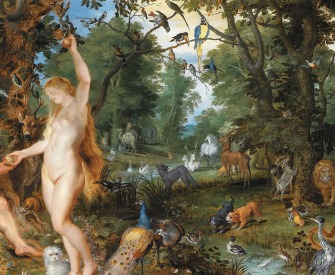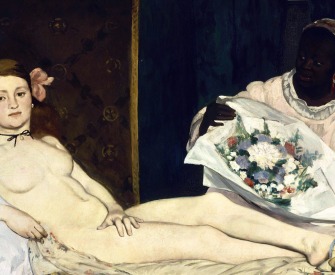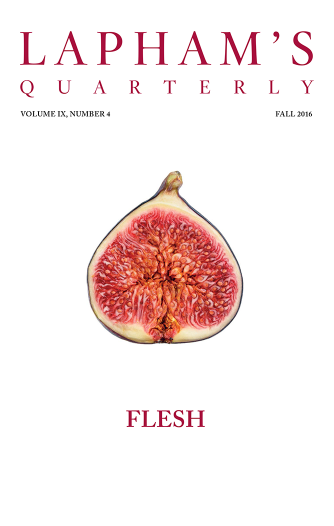I believe that if the ladies would retrench a yard or two of those extended hoops they now wear, they would be much less liable to many embarrassments one frequently beholds them in walking the streets.
How often do the angular corners of such immense machines, as we sometimes see, though held up almost to the armpits, catch hold of those little poles that support the numerous stalls with which this populous city abounds, and throw down, or at least endanger the whole fabric, to the great damage of the fruiterer, fishmonger, comb-and-buckle sellers, and others of these small chapmen.
Many very ugly accidents of this kind have lately happened, but I was an eyewitness from my window of one that may serve as a warning to my sex either to take chair or coach or to leave their enormous hoops at home, whenever they have occasion to go out on a Monday or Friday, especially in the morning.
It was on the former of those unhappy days that a young creature, who, I dare answer, had no occasion to leave anyone at home to look after her best clothes, came tripping by with one of those mischief-making hoops, which spread itself from the steps of my door quite to the posts placed to keep off the coaches and carts.

Europeans refreshing themselves on a balcony, Mughal, India, possibly Deccan, early eighteenth century. The British Museum.
A large flock of sheep were that instant driving to the slaughterhouse, and an old ram, who was the foremost, being put out of his way by some accident, ran full butt into the footway, where his horns were immediately entangled in the hoop of this fine lady as she was holding it up on one side, as the genteel fashion is, and as the make of it requires. In her fright she let it fall down, which still more encumbered him, as it fixed upon his neck. She attempted to run, he to disengage himself, which neither of them were able to do. She shrieked, he baa’d, the rest of the sheep echoed the cry, and the dog who followed the flock barked so that all together made a most hideous sound. Down fell the lady, unable to sustain the forcible efforts the ram made to obtain his liberty. A crowd of mob, who were gathered in an instant, shouted. At last the driver, who was at a good distance behind, came up and assisted in setting free his beast and raising the lady, but never was finery so demolished. The late rains had made the place so excessive dirty that her gown and petticoat, which before were yellow, the color so revered in Hanover, and so much the mode in England at present, were now most barbarously painted with a filthy brown, her gauze cap, half off her head in the scuffle, and her tête de mouton hanging down on one shoulder. The rude populace, instead of pitying, insulted her misfortune, and continued their shouts till she got into a chair and was quite out of sight.
“An Ugly Accident Occasioned by a Ram.” Born in London around 1690, Haywood left her middle-aged husband to join the stage, debuting in 1715 in an adaptation of Timon of Athens. She wrote more than seventy works, including Memoirs of a Certain Island Adjacent to Utopia, a controversial satire based on society scandals. In 1744 she founded The Female Spectator, the first periodical written by a woman, in which this article appeared. “Why do they call us silly women,” Haywood wrote in its pages, “and not endeavor to make us otherwise?” She died in 1756 while at work on The Young Lady, another periodical.
Back to Issue






